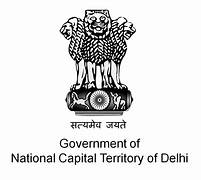Published on: July 5, 2023

Delhi Ordinance
Delhi Ordinance

CONTEXT The Ordinance promulgated by the President amending the Government of National Capital Territory of Delhi Act 1991(GNCTD Act) took away the services from the jurisdiction of the Delhi government.
BACKGROUND
- The President of India exercised legislative power under Article 123 of the Constitution to promulgate The Government of National Capital Territory of Delhi (Amendment) Ordinance, 2023
- Why – Nullify Supreme Court’s decision to hand over power to transfer bureaucrats posted to Delhi to the Lieutenant Governor
WHAT ORDINANCE AIMS AT
Creates of National Capital Civil Service Authority (NCCSA):
- Members – Headed by the elected Chief Minister of Delhi in addition to the Chief Secretary and the Principal Secretary of the Home department
- Function – Make recommendations to the Lieutenant Governor (LG) regarding the transfer, posting, vigilance and other incidental matters wrt to AISs and DANICS serving the Delhi government
- All matters are required to be decided by a majority of votes. This means that the decision of the elected CM can be overruled by the two senior bureaucrats.
Role of LG:
- Will pass orders to give effect to the recommendations passed by the NCCSA.
- In case the L-G differs from the recommendation made, s/he may return the recommendation for reconsideration by the NCCSA
ARTICLE 239 AA
- Supreme Court based its decision is based on Article 239AA
- Gives power Delhi’s Legislative Assembly to make laws with respect to any of the matters enumerated in the State list or the concurrent list except the three excluded items such as police, public order and land
WHAT ARE THE LEGALITY IN DELHI ORDINANCE ?
- Affects basic structure : A constitutionally vested power under Article 239AA cannot be divested through ordinary law-making power and does not confer amending powers. Thus, Parliament under services by law but it cannot revoke a law-making power. Supreme Court’s decision on services located the Delhi Government’s power not merely in Article 239AA but in the basic features of the Constitution.
- Contrary to the principle of representative democracy: The ordinance’s objective of setting up a National Capital Civil Service Authority with ultimate power in the hands of the Lieutenant Governor has weak constitutional moorings.
- Struggle for Power : Lieutenant governor will transfer and post official that was done by the elected government earlier .The amendment will undermine the authority elected government and gives the way for LG opinion in case of difference
- Hampers the governance: The government is elected by the people and it has to reflect the will of the people by making policies and it will do so with the help of the civil servants. If these civil servants only are kept isolated from the elected government then the civil servants would be unaccountable and the principle of collective responsibility will stand defeated.
- Violates federalism: Elected representatives must have a say in these matters in the participation of governance . Federalism is a democracy-complementing principle allowing for the relevant populace to self-determine. The ordinace will encroaches the rights of states
- Violation of the Doctrine of separation of powers: The ordinance simply lay down that this judgement will have no effect and this is not permissible by the law settled by various precedents. This is clear cut violation of the Doctrine of separation of powers.
Way forward
- Federal democracy is in principle that makes the exercise of power a remit of an elected head and not of nominal heads like presidents, governors and lieutenant governors.
- Respecting the constitutional principle like participate democracy and federalism is the need of an hour

